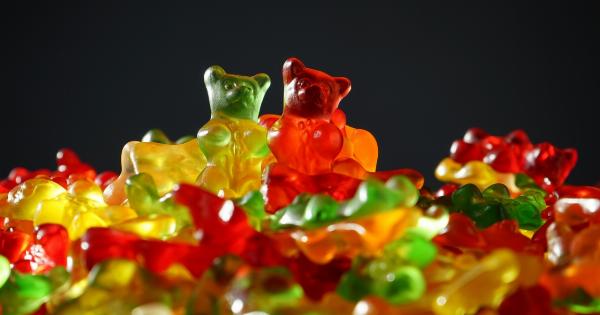Psychopathy is a complex personality disorder characterized by a lack of empathy, manipulative behavior, and a disregard for social norms.
While much research has been conducted on the psychological traits and behavioral patterns of psychopaths, not much is known about their dietary preferences. In this article, we delve into the minds of psychopaths and explore what they eat and drink.
The Psychopathic Mind
Psychopaths have distinct brain patterns and neurological differences compared to non-psychopathic individuals.
Their brains show reduced activity in areas associated with empathy and moral decision-making, while displaying heightened activity in areas related to impulsivity and reward-seeking behavior.
Food Preferences of Psychopaths
Psychopaths tend to gravitate towards certain types of food. While individual preferences may vary, some common patterns have been observed.
Psychopaths often have a preference for consuming foods that contain high levels of fat and salt, which may be linked to their impulsivity and reward-seeking behavior.
The allure of fatty foods
Research suggests that psychopaths are drawn to fatty foods due to their pleasurable sensory experience. The high fat content stimulates the reward centers in their brains, providing a sense of gratification and pleasure.
This may explain their inclination towards consuming foods such as hamburgers, fried chicken, and other indulgent options.
The salt craving
Psychopaths also tend to have a heightened preference for foods high in salt. The consumption of salty foods activates the brain’s reward system as it releases dopamine, a neurotransmitter associated with pleasure and satisfaction.
This may explain why psychopaths often reach for snacks such as potato chips, pretzels, and other salty treats.
Social Manipulation and Fine Dining
Psychopaths are skilled manipulators and often utilize charm and social skills to get what they want. Fine dining and extravagant meals can serve as a tool for manipulating others and appearing sophisticated or influential.
Psychopaths may use their knowledge of gourmet food and wine to create an illusion of power or to impress potential victims.
Drinks of Choice
When it comes to beverages, psychopaths display varied preferences. While some may opt for alcoholic drinks, others may choose non-alcoholic options. Here are a few common drink choices among psychopaths:.
1. Alcohol
Alcoholic beverages, such as whiskey, vodka, or wine, are popular choices among psychopaths. Alcohol can lower inhibitions and impair judgment, which can be advantageous for those seeking to manipulate or exploit others.
2. Energy drinks
Psychopaths may also consume energy drinks to increase alertness and endurance. The high caffeine content in these drinks provides a temporary boost in energy levels and may facilitate their ability to stay focused and maintain control over situations.
3. Fruit juices and mocktails
Some psychopaths may opt for non-alcoholic drinks, such as fruit juices or mocktails, especially when aiming to blend in or maintain a non-threatening appearance.
These beverages offer a wide variety of flavors and can be used to put others at ease during social interactions.
The Influence of Environmental Factors
While psychopathy is primarily determined by genetic factors and brain abnormalities, environmental factors can also play a role in shaping dietary preferences.
Childhood experiences, cultural influences, and personal choices can impact the types of food psychopaths are drawn to.
Conclusion
The dietary preferences of psychopaths offer an intriguing glimpse into the minds of these individuals.
Their penchant for high-fat, high-salt foods, along with their varied beverage choices, provides insight into the neural mechanisms behind their actions. Understanding the relationship between their dietary preferences and their psychological traits can lead to a better understanding of psychopathy as a whole.






























